Synthetic ropes are essential in many industries due to their lightweight, durability, and versatility. Join SIAM Brothers Vietnam in exploring the history, properties, applications, and benefits of synthetic ropes through this article.
Synthetic rope is a type of rope made from artificial fibers, typically derived from petrochemical compounds like nylon, polyester, polypropylene, and polyethylene. Synthetic ropes are designed to be highly durable, flexible, and resistant to environmental factors such as water, UV rays, and chemicals. Thanks to these properties, synthetic ropes are widely used in various industries, including marine, construction, and sports.

Synthetic Rope - Source: Pexels
Common Materials of Synthetic Rope
The three most common materials used for making ropes are nylon, polyester, and polypropylene. Polyethylene is also sometimes used. Some ropes are made from a combination of these materials.
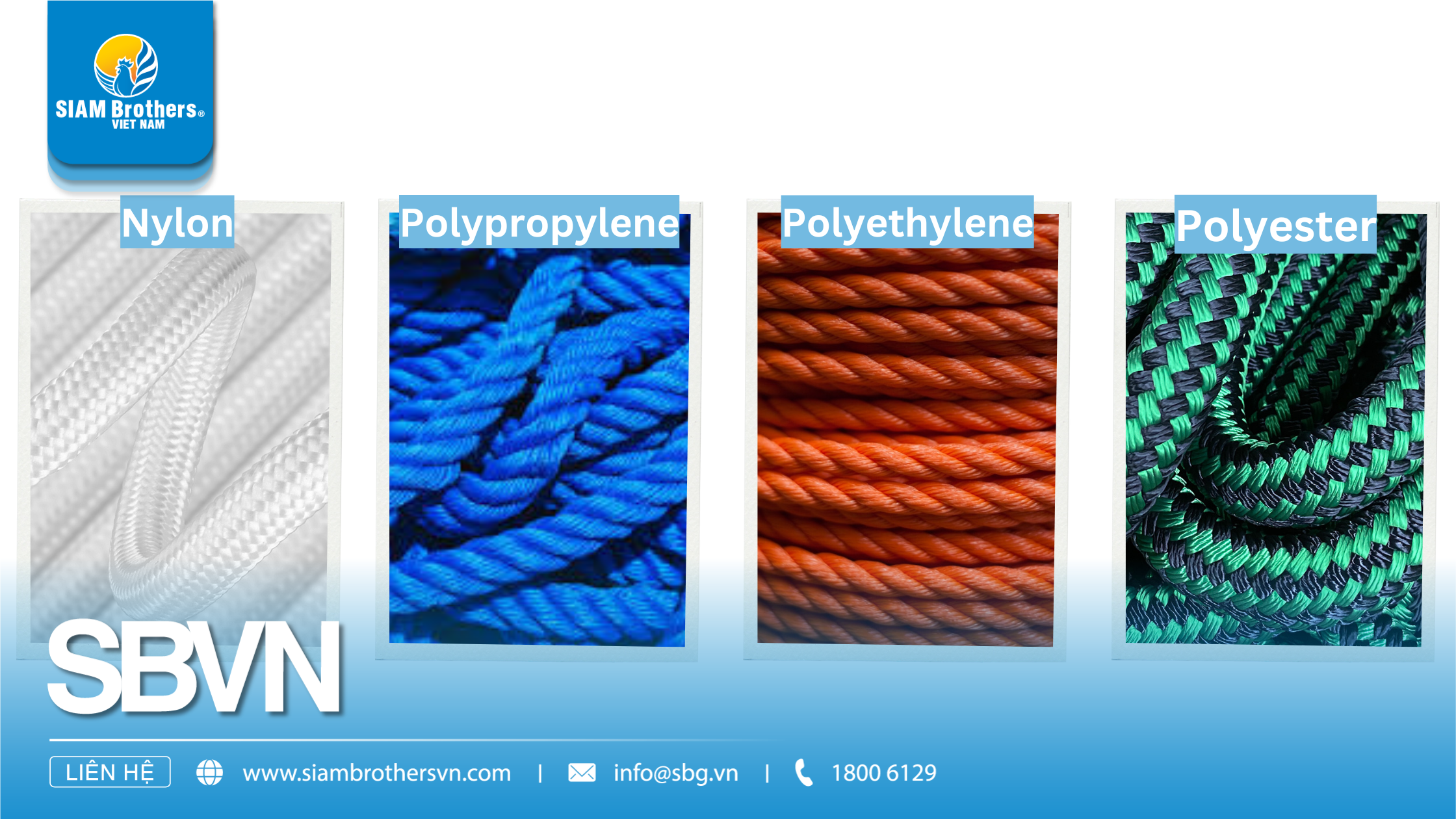
Common Materials of Synthetic Rope
Nylon is generally the strongest material among the common ones when dry. However, some nylon ropes can lose up to 20% of their strength when wet. There are two types of nylon used in ropes: nylon 6 and nylon 6.6. The properties of these fibers, and the ropes made from them, do not differ significantly, except that nylon 6 has a lower melting point.
Polyester ropes are nearly as strong as nylon when dry. Polyester retains its strength when wet, so polyester ropes are usually stronger than nylon ropes when in wet conditions.
Polypropylene is perhaps the most common material found in ropes used in the marine industry. One reason is that it is lighter than water, so it can float.
Polyethylene is less commonly used in large ropes. It is utilized in water-ski ropes and other small ropes for practical purposes. Polyethylene is also extensively used in the fishing industry.
Read more: What is the Difference Between PP Rope and Nylon Rope?
The development of synthetic rope can be traced back to the early 20th century, following advancements in polymer chemistry. In the 1930s, nylon was the first synthetic fiber to be mass-produced by DuPont, revolutionizing the rope industry. This new material offered greater strength and elasticity than natural fibers, and its resistance to rot and mildew made it particularly appealing for marine applications.
During World War II, the demand for synthetic fibers skyrocketed, as they were used for parachutes, ropes, and various military equipment. Post-war, the use of synthetic fibers expanded into commercial and industrial applications, leading to the development of other fibers like polyester and polypropylene in the 1950s and 60s. Each new fiber brought unique properties, making synthetic ropes more versatile and better suited for specific applications.
In the 1990s, introducing ultra-high-molecular-weight polyethylene (UHMWPE) fibers, such as Dyneema and Spectra, marked another milestone in the evolution of synthetic ropes. These high-strength fibers offered unmatched durability and were quickly adopted in industries requiring extreme strength-to-weight ratios, such as aerospace and defense.
Read more: The Invention of Rope: A Journey Through History
Synthetic ropes are used across various industries due to their versatility and performance characteristics:

Synthetic Ropes in the Maritime Industry
Synthetic ropes are widely utilized in maritime environments for mooring, towing, and securing ships. Their water and UV resistance makes them ideal for long-term exposure to harsh conditions.
Synthetic ropes are used in construction to lift, secure loads, and set up scaffolding. Their high strength-to-weight ratio enables them to support heavy loads while remaining easy to handle.
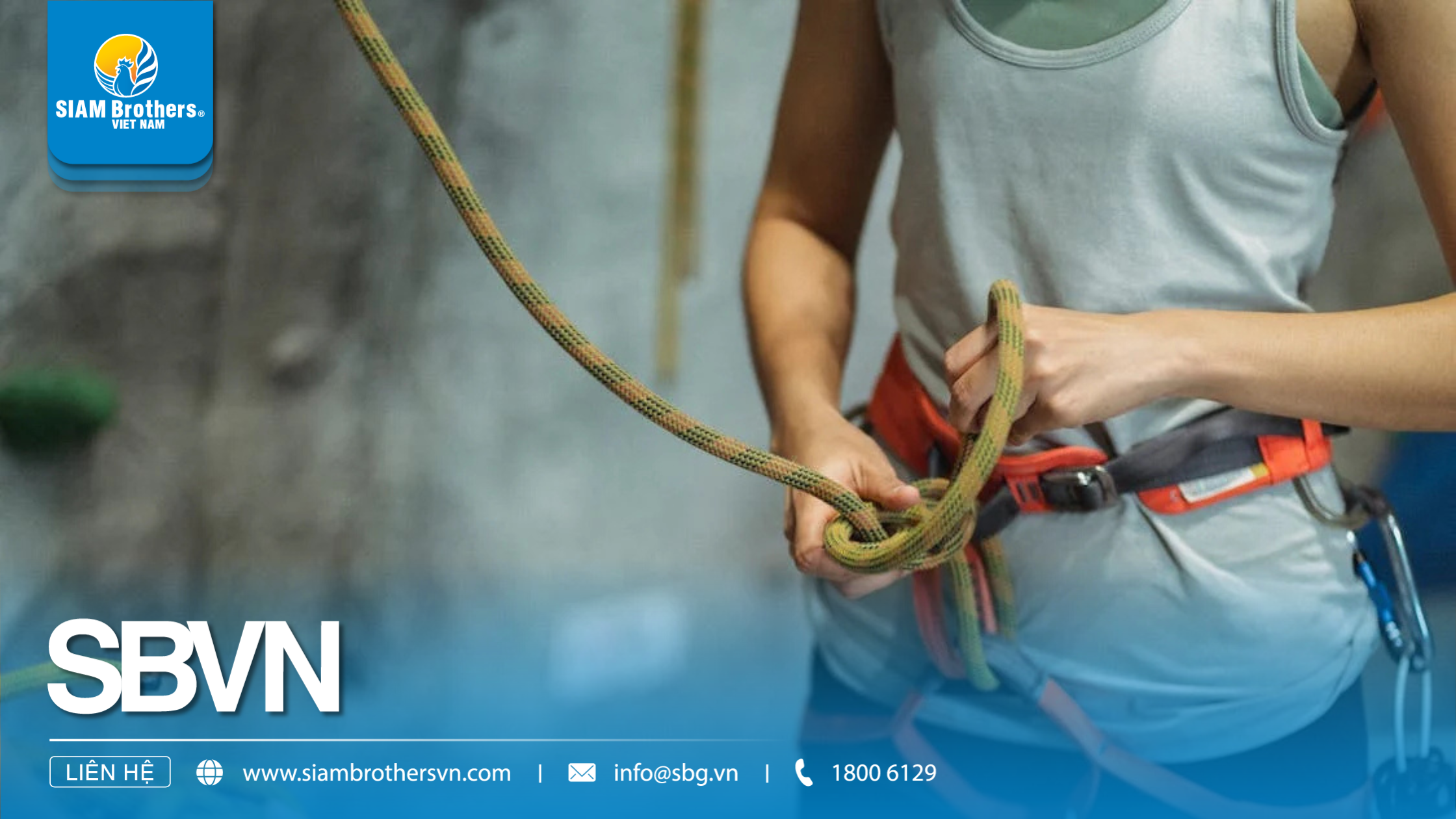
Synthetic Ropes in Sports
Synthetic ropes, such as those made from nylon, are highly popular in climbing and safety equipment due to their shock absorption and reliability under load. Synthetic ropes are also widely used in sports like sailing, water skiing, and mountain climbing, where durability, lightweight properties, and resistance to environmental factors are crucial.
Synthetic ropes are a key component in rescue operations, offering durability and reliability in safety gear such as safety harnesses, rescue stretchers, and anchor lines.
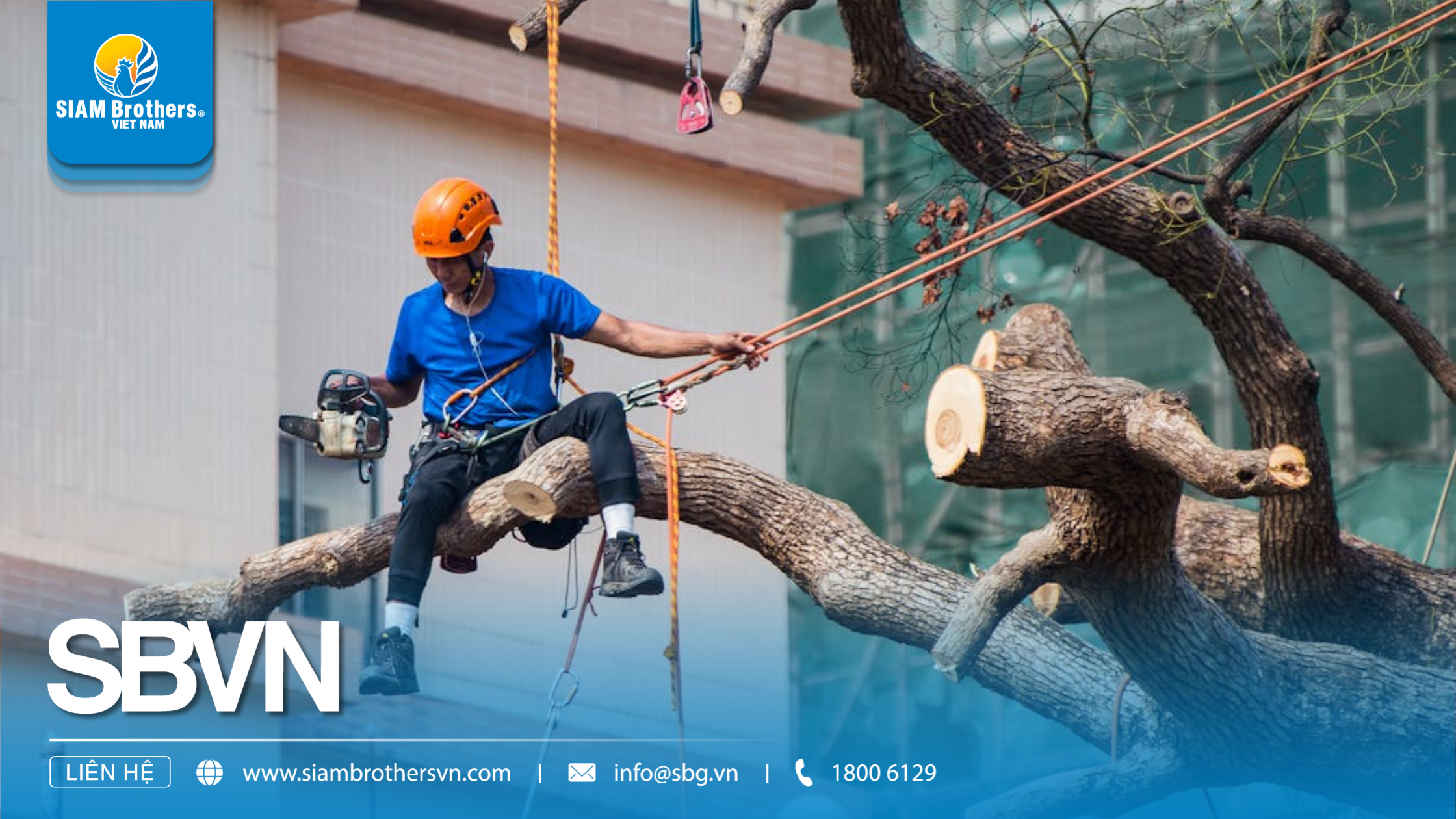
Synthetic Ropes in Rescue Operations
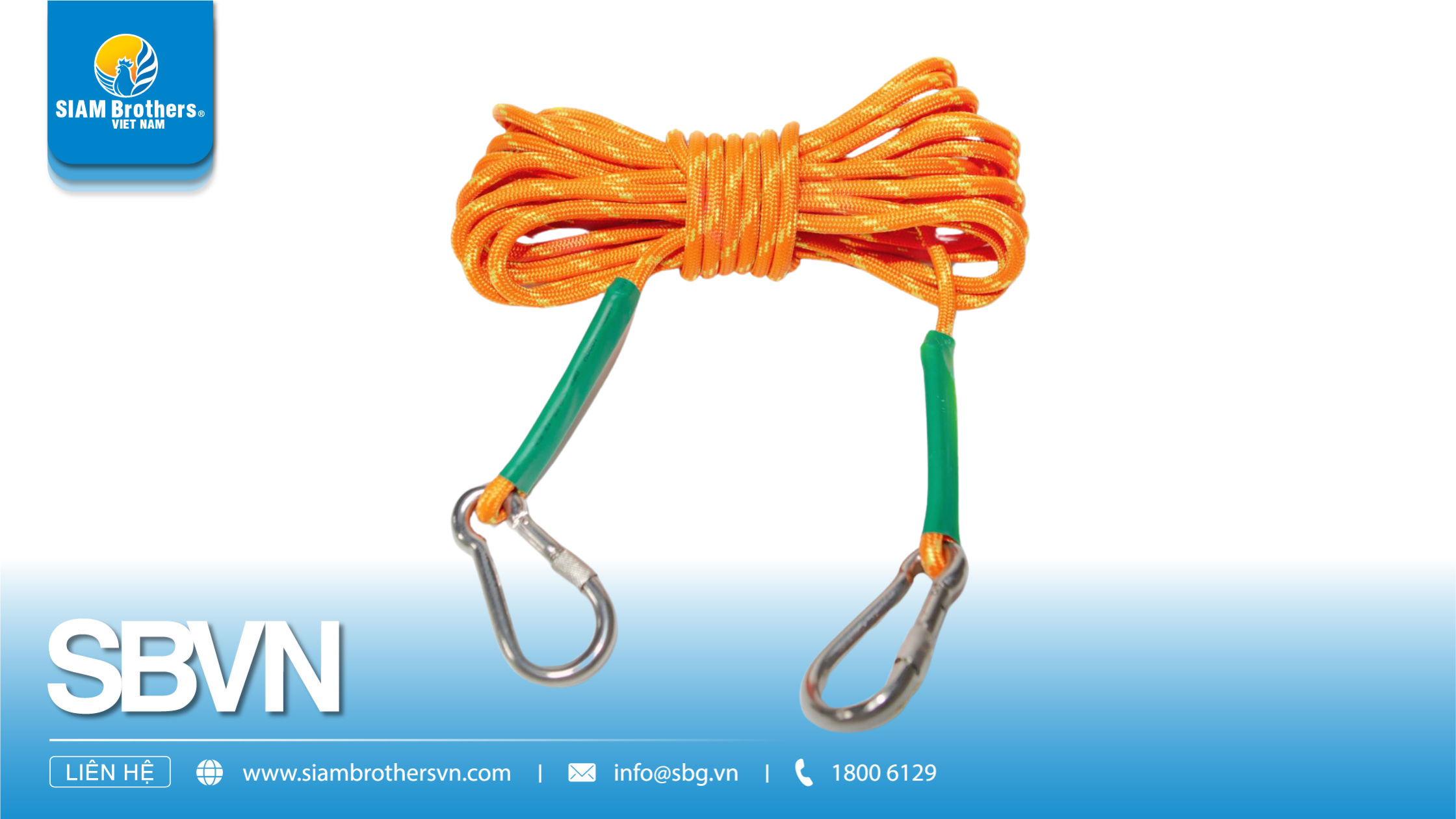
Escape rope - Source: SIAM Brothers Vietnam
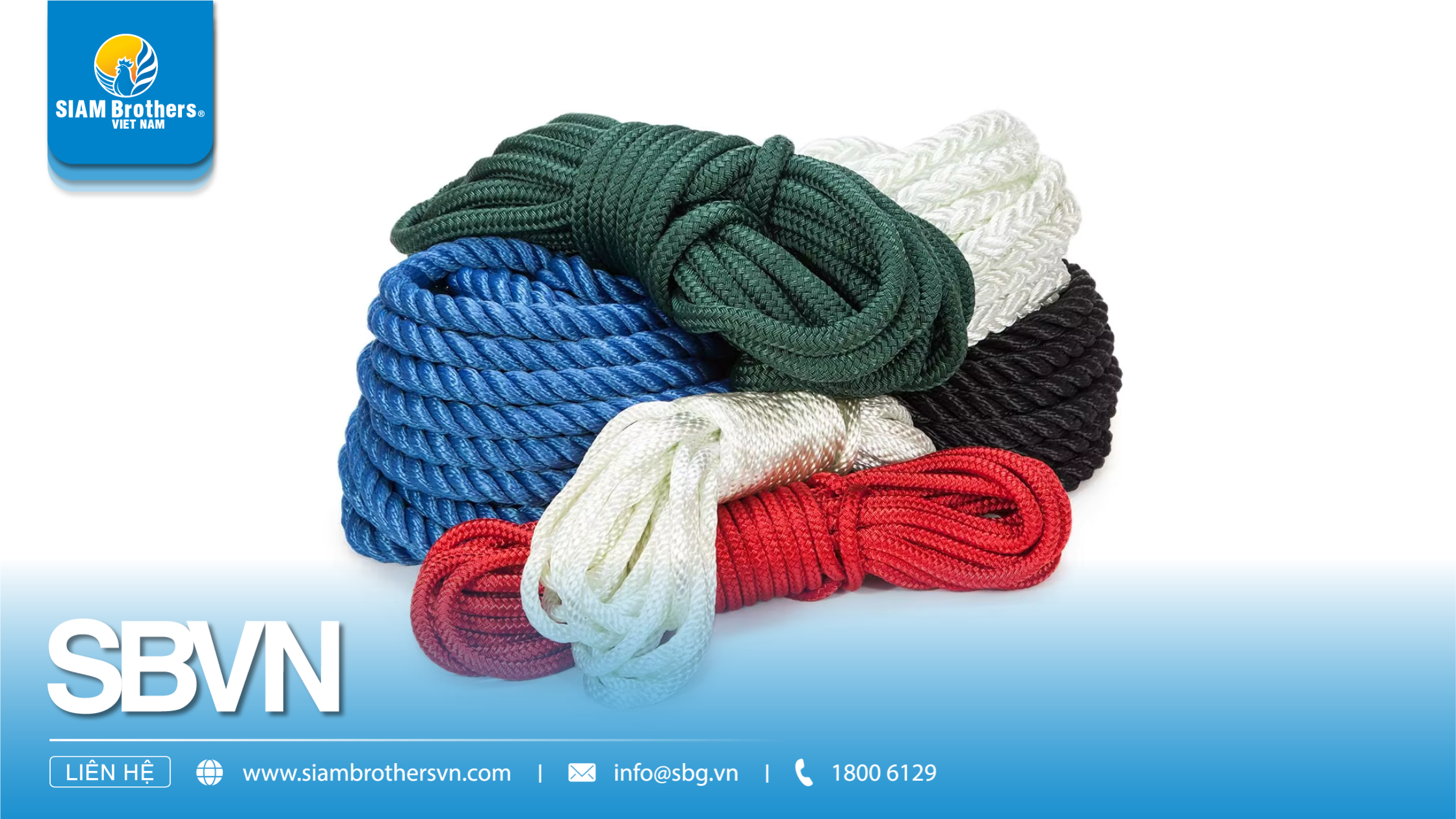
Synthetic rope
Synthetic ropes offer numerous advantages over natural ropes, making them the optimal choice for various fields. Some of the key benefits include:
High Durability: Synthetic ropes offer superior durability compared to natural ropes, allowing them to withstand greater loads and stress.
Lightweight: Synthetic ropes are lightweight, reducing the overall weight of equipment. This is especially important in applications like climbing, aerospace, and maritime, where weight reduction is essential.
Long Lifespan: With resistance to rot, mold, and UV rays, synthetic ropes have a longer lifespan than natural ropes, reducing the frequency of replacement and saving overall costs.
Flexibility: The wide variety of synthetic fibers allows for the customization of ropes to meet specific needs, ranging from flexible, stretchable ropes to strong, low-stretch options.
Low Maintenance Requirements: Synthetic ropes are waterproof, chemical-resistant, and do not face the degradation issues that natural ropes do, thus requiring less maintenance.
Cost Savings: While the initial cost may be higher than natural ropes, the longevity and lower maintenance needs of synthetic ropes make them a more economical choice in the long run.
Synthetic ropes have proven their outstanding value and necessity across various fields due to their superior characteristics such as high durability, flexibility, and resistance to environmental factors. With continuous technological advancements, synthetic ropes are constantly being improved to meet the increasingly diverse and specialized demands of industries.
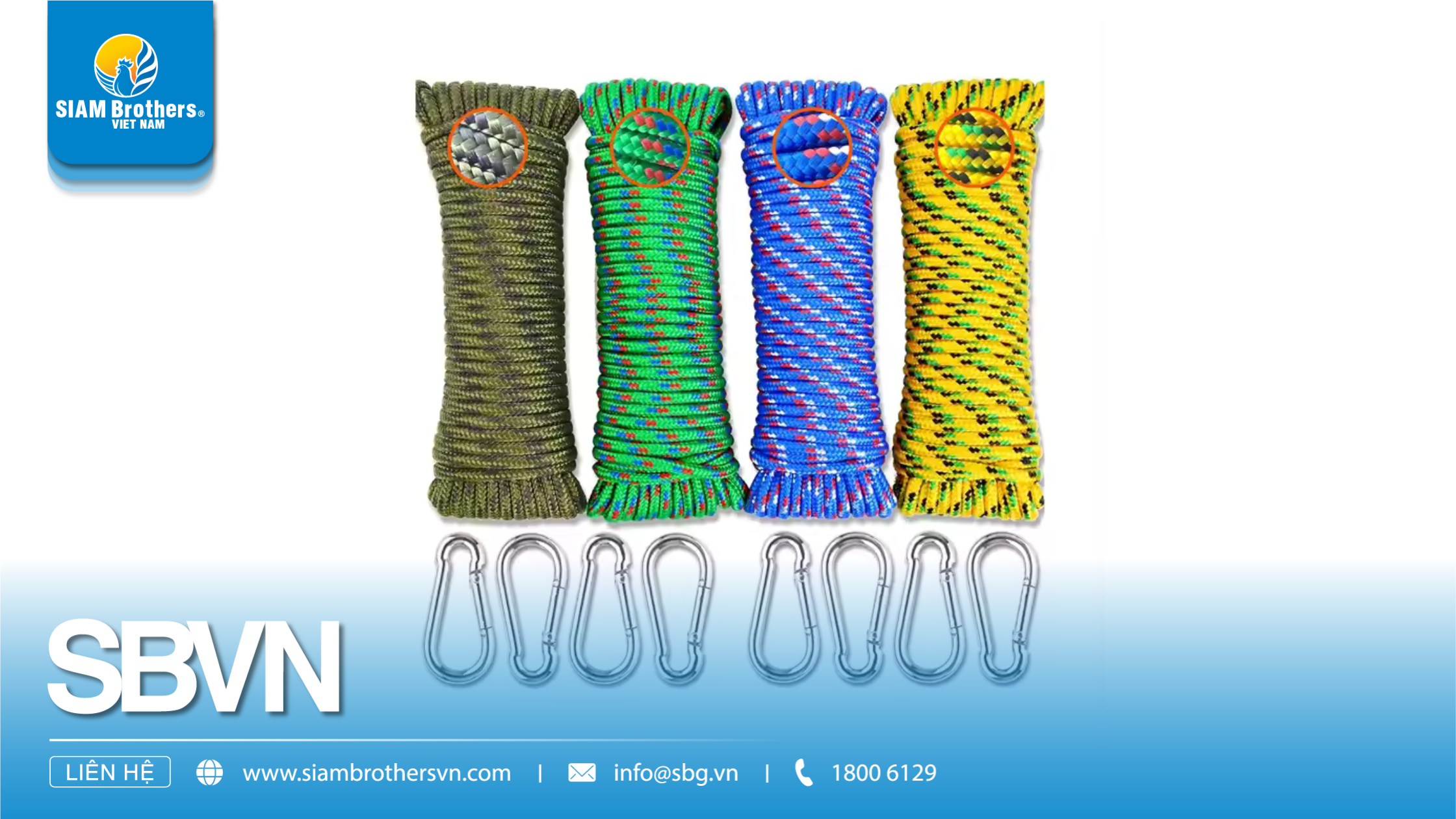
Synthetic rope
If you're looking for a reliable source of high-quality synthetic ropes, SIAM Brothers Vietnam Joint Stock Company is a trusted and reputable address. With over 60 years of experience and a commitment to quality, we offer a wide range of rope products, including PP ropes, PE ropes, PET ropes, and many others suitable for applications ranging from industrial, and agricultural to decorative use.
Choose SIAM Brothers Vietnam to ensure you receive the best synthetic rope products that meet your strict requirements. Experience the difference in quality and service we provide today!
Source: SIAM Brothers Vietnam
Contact us:
Address: 5th floor, VRG Building, 177 Hai Ba Trung Str., Vo Thi Sau Ward, Disc. 12, Ho Chi Minh City, Vietnam
Tel: (+84) 28 38 912 889
Hotline: 1800 6129
Facebook: www.facebook.com/siambrothersvn
Email: info@sbg.vn
Youtube: youtube.com/@siambrothersvietnam1728
OA Zalo: zalo.me/1402339229697925373
App SBVN ID:
CHPlay: https://bit.ly/SBVNID-Android
Appstore: https://bit.ly/SBVNID-iOS